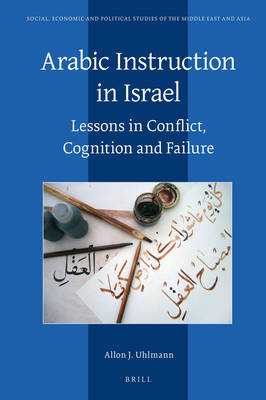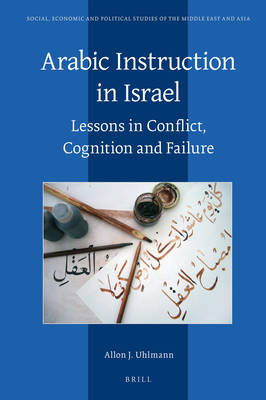
- Afhalen na 1 uur in een winkel met voorraad
- Gratis thuislevering in België vanaf € 30
- Ruim aanbod met 7 miljoen producten
- Afhalen na 1 uur in een winkel met voorraad
- Gratis thuislevering in België vanaf € 30
- Ruim aanbod met 7 miljoen producten
€ 175,95
+ 351 punten
Omschrijving
In Arabic Instruction in Israel Allon J. Uhlmann confronts two conundrums, namely the persistently poor level of Arabic proficiency among Jewish Arabic students and teachers, and the traumatic alienation of Arab students by university Arabic grammar instruction.
These are not aberrations but rather direct, albeit unintended, systemic consequences of the field of Arabic instruction, where Jewish students encounter Arabic as a dead, hostile language; Jewish hegemony devalues native Arabic proficiency; and Arab students are locked into a fractured educational trajectory - encountering two alienating and mutually unintelligible grammars of Arabic at school and at university.
By tracing systemic variabilities in cognition and learning Uhlmann exposes hitherto misrecognised dynamics that hinder Arabic instruction in Israel, thereby offering new avenues for possible change.
These are not aberrations but rather direct, albeit unintended, systemic consequences of the field of Arabic instruction, where Jewish students encounter Arabic as a dead, hostile language; Jewish hegemony devalues native Arabic proficiency; and Arab students are locked into a fractured educational trajectory - encountering two alienating and mutually unintelligible grammars of Arabic at school and at university.
By tracing systemic variabilities in cognition and learning Uhlmann exposes hitherto misrecognised dynamics that hinder Arabic instruction in Israel, thereby offering new avenues for possible change.
Specificaties
Betrokkenen
- Auteur(s):
- Uitgeverij:
Inhoud
- Aantal bladzijden:
- 196
- Taal:
- Engels
- Reeks:
- Reeksnummer:
- nr. 117
Eigenschappen
- Productcode (EAN):
- 9789004323810
- Verschijningsdatum:
- 3/08/2017
- Uitvoering:
- Hardcover
- Formaat:
- Genaaid
- Afmetingen:
- 155 mm x 235 mm
- Gewicht:
- 447 g

Alleen bij Standaard Boekhandel
+ 351 punten op je klantenkaart van Standaard Boekhandel
Beoordelingen
We publiceren alleen reviews die voldoen aan de voorwaarden voor reviews. Bekijk onze voorwaarden voor reviews.










